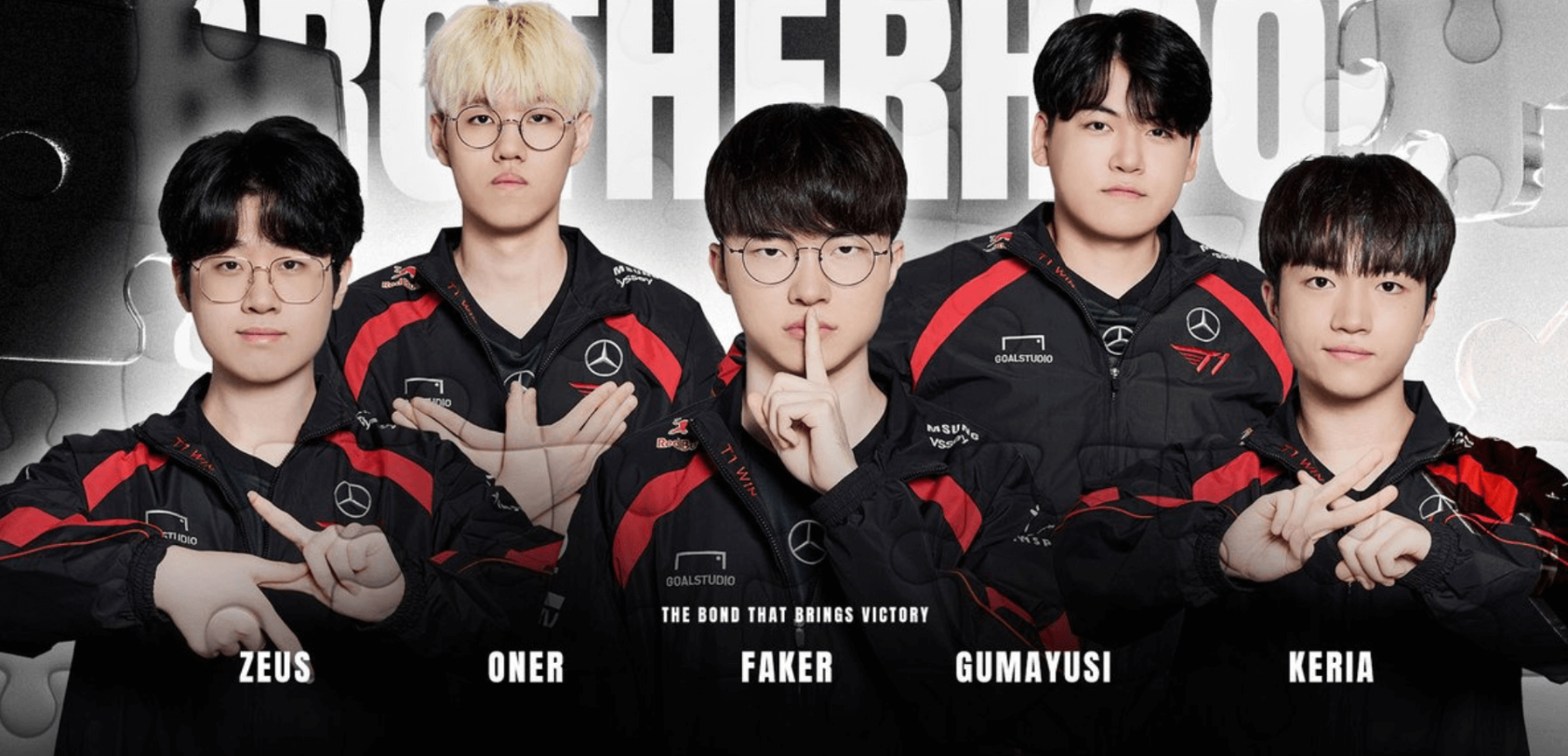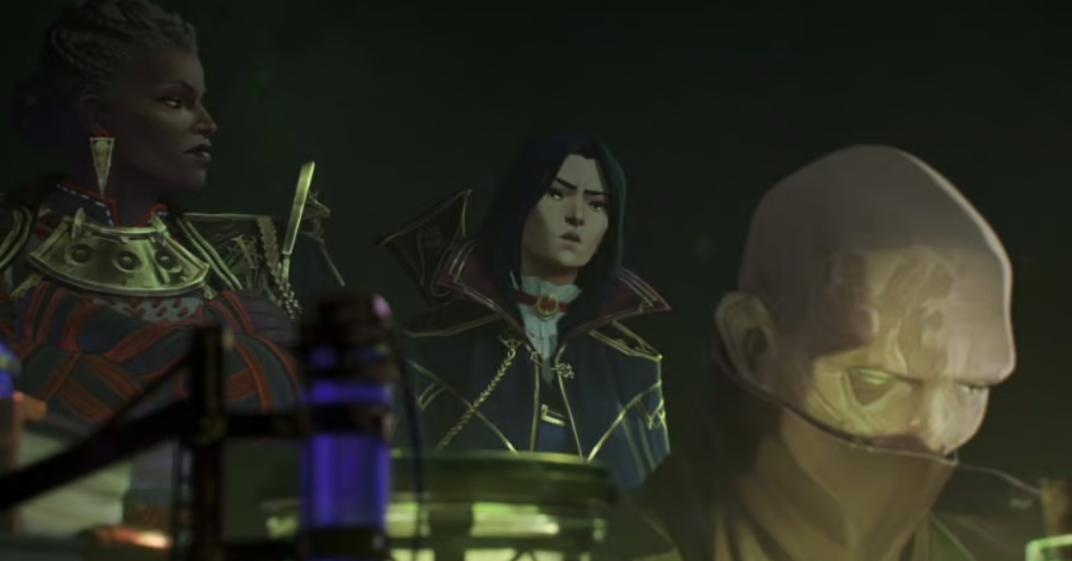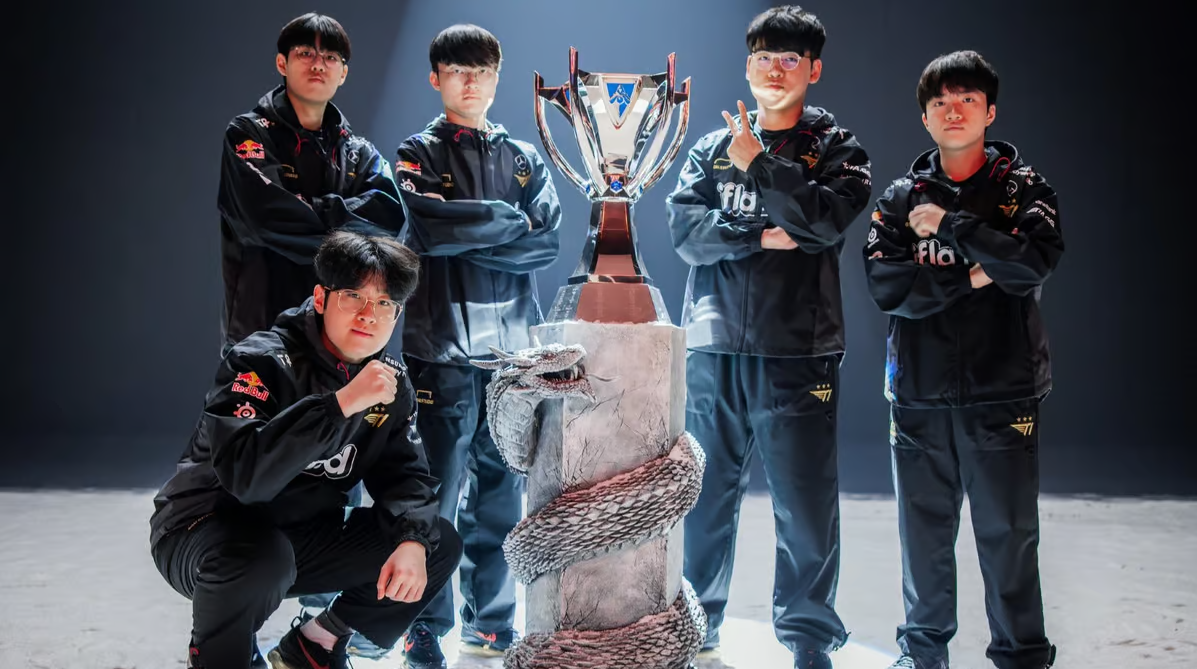T1’s Challenges in the 2024 LCK Summer Split

After a strong showing in the 2024 LCK Spring, where they finished second overall and narrowly lost in the finals, T1 were expected to be among the top contenders in the Summer split. Their roster had remained largely unchanged for nearly four years, and their impressive playoff run had cemented their status as one of the LCK’s powerhouses. However, the 2024 LCK Summer has proven to be a surprisingly difficult challenge for the T1 squad led by the legendary Faker. Despite the high expectations, the team has faced unexpected obstacles and has struggled to maintain their previous level of dominance. This unexpected downturn has left many fans and analysts puzzled, as T1’s roster and coaching staff were widely regarded as one of the most stable and successful in the league. The team’s difficulties in the 2024 LCK Summer have become a source of discussion and speculation within the League of Legends esports community.
One of the key factors contributing to T1’s struggles seems to be a lack of adaptability. The team’s signature playstyle and champion pool, which had served them well in the past, appear to have become predictable and easier to counter by their opponents. Additionally, the rise of new, innovative strategies and team compositions in the LCK have caught T1 off guard, forcing them to play catch-up. Another issue that has plagued T1 is inconsistency within the roster. While the core players have remained the same, some individuals have experienced dips in form, leading to a lack of cohesion and synergy within the team. This has made it challenging for T1 to maintain the level of dominance they had displayed in previous splits.
Furthermore, the increased competitiveness of the LCK as a whole has also played a role in T1’s difficulties. Teams like Gen.G, DRX, and Damwon Gaming have all made significant improvements, challenging the traditional hierarchy of the league. This has forced T1 to adapt and raise their own game, which they have seemingly struggled to do in the current split. Despite these challenges, T1 remains one of the most respected and iconic teams in the LCK. Faker and his squad are known for their resilience and ability to bounce back from adversity. As the 2024 LCK Summer split progresses, all eyes will be on T1 to see if they can overcome their current struggles and reassert their dominance in the league.
Table of Contents
T1 matches
As the 2024 LCK Summer split kicked off, T1 faced off against NS RedForce in their opening series. Both teams appeared to have clear game plans and strategies in mind, with T1 opting to repeat their Azir and Senna picks across the two games. In contrast, NS RedForce maintained a consistent draft, essentially running the same composition twice. Despite this familiarity, the series proved to be a closely contested affair, with T1 showcasing their trademark teamwork and individual talent. Unfortunately for the T1 faithful, their efforts were not enough to secure the victory, as NS RedForce managed to overcome the reigning LCK powerhouse in both games. The mid-series loss was a disappointing start for the T1 squad, who had high hopes of reasserting their dominance in the summer split. Though the final result did not go their way, T1’s performance against NS RedForce offered a glimpse of their potential. The team’s ability to execute their preferred strategies and the standout performances of their star players suggested that they remained a force to be reckoned with in the LCK. As the split progresses, all eyes will be on T1 to see if they can build upon this promising start and overcome the challenges that have hindered their success thus far. The road ahead may be difficult, but the team’s storied history and unwavering determination will undoubtedly fuel their pursuit of greatness once again.
T1’s difficulties in the 2024 LCK Summer split have been a surprise to many, given the team’s consistent success in recent years. Led by the legendary Faker, T1 had established themselves as one of the most dominant and consistent teams in the LCK, boasting a roster that had remained largely unchanged for nearly four years. However, the current split has presented unexpected challenges for the T1 squad. Despite their impressive performance in the spring, where they narrowly missed out on the championship, the team has struggled to maintain their high level of play in the summer. One of the key factors contributing to T1’s struggles seems to be a lack of adaptability. The team’s signature playstyle and champion pool, which had served them well in the past, appear to have become predictable and easier to counter by their opponents. Additionally, the rise of new, innovative strategies and team compositions in the LCK have caught T1 off guard, forcing them to play catch-up.
Another issue that has plagued T1 is inconsistency within the roster. While the core players have remained the same, some individuals have experienced dips in form, leading to a lack of cohesion and synergy within the team. This has made it challenging for T1 to maintain the level of dominance they had displayed in previous splits. Furthermore, the increased competitiveness of the LCK as a whole has also played a role in T1’s difficulties. Teams like Gen.G, DRX, and Damwon Gaming have all made significant improvements, challenging the traditional hierarchy of the league. This has forced T1 to adapt and raise their own game, which they have seemingly struggled to do in the current split. Despite these challenges, T1 remains one of the most respected and iconic teams in the LCK. Faker and his squad are known for their resilience and ability to bounce back from adversity. As the 2024 LCK Summer split progresses, all eyes will be on T1 to see if they can overcome their current struggles and reassert their dominance in the league. One of the key lessons that can be drawn from T1’s difficulties in the 2024 LCK Summer is the importance of adaptability in the ever-evolving landscape of professional League of Legends. The LCK, once considered a relatively stable and predictable league, has undergone a significant transformation in recent years. The emergence of new, innovative strategies and team compositions has disrupted the traditional power dynamics, forcing even the most dominant teams to rethink their approach to the game.
For a team like T1, which had built its success on a consistent and well-refined playstyle, this shift in the competitive landscape has posed a significant challenge. Their inability to adapt quickly enough to the changing meta and the rise of new threats within the league has been a primary factor in their struggles. Successful teams in the modern LCK must possess a keen ability to identify and respond to emerging trends, both in terms of champion picks and team compositions. They must be willing to experiment, take risks, and constantly push the boundaries of their own strategies and gameplay. This adaptive mindset is especially crucial for veteran rosters like T1, who have enjoyed prolonged periods of dominance. Complacency and an unwillingness to evolve can quickly lead to a team’s downfall, as their opponents recognize and exploit their weaknesses. As the 2024 LCK Summer split continues, T1 will need to demonstrate their capacity for adaptation and innovation if they hope to regain their position as one of the league’s top contenders. This may require a willingness to step outside their comfort zone, try new approaches, and experiment with different playstyles and champion pools. The ability to adapt and evolve is not just a key to success in the current split, but a fundamental requirement for any team aspiring to maintain long-term dominance in the ever-changing landscape of professional League of Legends.
Alongside the need for adaptability, T1’s struggles in the 2024 LCK Summer split have also highlighted the significance of roster stability and team synergy in professional League of Legends. For years, T1 had been lauded for their consistent roster and the strong relationships between their players. This continuity had been a significant factor in their sustained success, allowing the team to develop deep understanding and synchronization on the Rift. However, the current split has seen cracks emerge in this foundation, with some individual players experiencing dips in form and a perceived lack of cohesion within the team. Despite the roster remaining largely unchanged, the team’s performance has not lived up to the high expectations set by their previous accomplishments. This serves as a reminder that roster stability, while valuable, is not a guarantee of continued success. Teams must constantly work to maintain and strengthen the bonds between their players, ensuring that the individual talents coalesce into a unified, synergistic whole.
In the ever-competitive landscape of the LCK, where opponents are constantly seeking to identify and exploit any weaknesses, the ability of a team to function as a well-oiled machine becomes increasingly critical. Even the slightest breakdown in communication or coordination can be the difference between victory and defeat. As T1 looks to regain their footing in the 2024 LCK Summer, they will need to focus not only on tactical and strategic adaptations, but also on strengthening the interpersonal dynamics within the team. This may involve additional team-building exercises, improved communication protocols, and a renewed emphasis on cultivating a cohesive, collaborative environment. Ultimately, the lesson from T1’s struggles is that roster stability and synergy are not static attributes, but rather dynamic elements that require constant maintenance and nurturing. Even the most talented and experienced teams must remain vigilant in preserving the foundation that has underpinned their past successes. Despite the unexpected challenges they have faced in the 2024 LCK Summer split, T1 and their legendary leader, Faker, remain one of the most respected and iconic teams in the history of professional League of Legends. Faker, in particular, has cemented his status as one of the greatest players to ever grace the Rift. His unparalleled skill, game sense, and adaptability have made him a central figure in the LCK and global League of Legends scene for over a decade.
Even as T1 has navigated the current rough patch, Faker’s unwavering leadership and commitment to excellence have continued to inspire both his teammates and the broader esports community. His ability to rise above adversity and lead his team to victory has been a hallmark of his illustrious career. Beyond the individual accomplishments of Faker, T1’s legacy as an organization is deeply intertwined with the history of professional League of Legends. The team’s sustained dominance, its ability to cultivate and nurture talent, and its commitment to excellence have made it an integral part of the esports landscape. Even in the face of unexpected challenges, the T1 brand and the team’s storied history continue to command the respect and admiration of fans and fellow competitors alike. Their ability to bounce back from setbacks and reassert their position as one of the premier teams in the LCK is a testament to the organization’s resilience and the strength of its foundations. As the 2024 LCK Summer split progresses, all eyes will be on T1 and Faker to see if they can overcome their current struggles and once again cement their status as one of the LCK’s premier teams. Regardless of the final outcome, the team’s enduring legacy
Match against Gen.G Esports
T1’s next match was against the formidable Gen.G Esports, and the result was nothing short of devastating. The series was a complete mismatch, with T1 utterly outclassed in both games. Game 1 lasted a mere 27 minutes, while Game 2 was over in just 24 minutes. T1 tried to make the Rell and Taliyah combo work, hoping to catch Gen.G off guard, but they were met with a much stronger combination from their opponents – Skarner, Nidalee, Ezreal, and Leona. Gen.G were so confident in their strategy that they picked those four champions twice, demonstrating their deep understanding of the meta and their ability to execute a flawless game plan. The crushing defeat against Gen.G was a humbling experience for T1. They had come into the match as one of the favorites, but were thoroughly outclassed in every aspect of the game. The team’s confidence must have been shaken, as they had not expected to be so thoroughly dominated by their rivals. However, T1 managed to bounce back in their next three matches, winning them with relative ease against Dplus, Freecs, and DRX. Dplus nearly snatched the first game, and Freecs even won one game, but ultimately T1 prevailed. DRX, on the other hand, looked hopeless from the start, and T1 were able to dispatch them without much trouble.
With a 4-2 record, T1 were doing well in the league, with their only loss coming against their arch-rivals, Gen.G Esports. But in their next match, one of the league’s underdogs, KT Rolster, managed to pull off an unexpected upset. KT Rolster, who had a 1-4 record going into the match, caught T1 off guard. Despite T1’s attempts to replicate their previous strategy of Azir, Zeri, and Skarner, it backfired not once, but twice. It’s puzzling why a team with such talented players and versatility would stick to the same strategy multiple times, especially when it had been proven ineffective. This loss to KT Rolster should have been a wake-up call for T1. They needed to re-evaluate their approach and strategies to regain their dominance and prove that they were truly capable of competing at the highest level. The team’s fans were left scratching their heads, wondering what had happened to the T1 they knew and loved.
The journey had not been without its challenges, but T1 had to learn from these setbacks and come back stronger. Their fans were eager to see the team reclaim their rightful place at the top of the league, and T1 knew that they had to put in the hard work and make the necessary adjustments to get there. One of the key areas that T1 needed to focus on was their strategic flexibility. They had been too reliant on a few champions and strategies, which had been easily countered by their opponents. The team had to diversify their approach, incorporating more champions and tactics into their repertoire to keep their opponents guessing. Additionally, T1 had to work on their communication and synergy as a team. The Gen.G and KT Rolster matches had exposed some weaknesses in their ability to coordinate and make quick, decisive decisions on the fly. They had to improve their in-game decision-making and ability to adapt to changing circumstances.
The coaching staff also had a crucial role to play in helping T1 overcome their recent setbacks. They needed to provide the players with clear and well-thought-out strategies, as well as the necessary support and guidance to execute them effectively. The coaches had to be willing to make tough decisions and make changes to the roster or game plan if necessary. With the league standings tight, T1 knew that they couldn’t afford any more slip-ups. They had to prove that they were the true champions of the league and that their recent losses were just temporary setbacks. The team’s resilience and determination would be put to the test in the coming matches, and their fans were eager to see them rise to the occasion.




